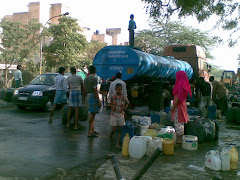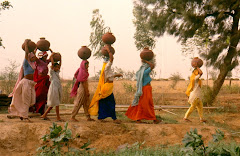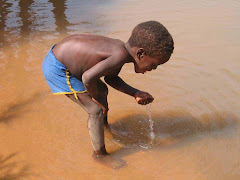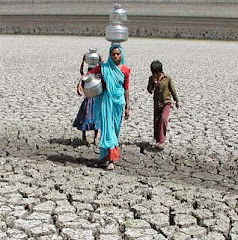It seems the Delhi Jal Board (DJB) has a lot to do this summer besides struggling to supply water to the residents of the capital city. On its agenda are issues of groundwater decline and supply of contaminated water to certain areas across the city.
Very soon, the state-run water utility is expected to reply to a notice it was issued by the National Human Rights Commission (NHRC) last month on supply of contaminated water in the national Capital.
NHRC has asked the DJB chief to submit a detailed report within four weeks, explaining the measures being taken to ensure potable water supply to the city's people.
The notice by NHRC came in the wake of a survey jointly conducted by DJB and the Municipal Corporation of Delhi (MCD) that revealed that 67 major water pipelines out of the 200 areas examined had cracks in them and were being contaminated by sewage.
Also, the pipelines were quite old and some in old Delhi including Chandni Chowk are almost 100 years old and have rusted, leading to major leakages.
The joint survey also stated that many residential colonies in Delhi had been getting contaminated water and the dangers posed by it are manifold as it may cause a variety of ailments including viral infection, hepatitis E, typhoid, cholera, jaundice, among others.
The issue of water contamination is certainly not new in the city. In fact, almost every year, reports emerge of colonies across the cities getting contaminated water. DJB often raises its hands, expressing its helplessness in the wake of mounting costs to run its huge operations. The reported 40 per cent non-revenue water (NRW) that the utility has does not help its case.
One has only to take a closer look at the city's water infrastructure to see a picture of neglect and apathy. Pipelines, even in the poshest of colonies, are rusting and leaking. Wastewater and solid waste can be found along the water pipelines that carry water that DJB calls potable.
No wonder, Delhi, like several other cities in India, is a major market for home-based water treatment systems makers.
A NHRC spokesperson had said in August, "The Commission is deeply concerned with the hazards posed to the citizens of Delhi due to supply of contaminated water. The Commission observed that the contents of the report, if true, amounts to serious violation of right to health of the people of Delhi".
MCD has said that water contamination is not just restricted to a few pockets of the city and has been found along with damaged pipelines in all 12 municipal zones in the city. Also, as many as 642 water pipelines of DJB are passing through drains and becoming a public hazard.
Delhi Jal Board CEO Ramesh Negi has admitted there is an issue of water contamination in certain areas in the city.
One possible solution, says Negi, lies in making "dedicated utility corridors" on the lines of other international cities where there are separate corridor s for electricity lines, water lines, and sewer lines.
DJB tackles a huge network of over 14,000 km of pipelines and 700 km of water mains and rest peripheral lines. As the city grows and demand for water grows, the DJB would have to push for solutions that are long-lasting. It would need to make serious efforts to bring down NRW and boost its revenues.
It has also to make efforts to arrest the decline in groundwater in the city. It was asked by the Delhi government to probe the drastic decline in groundwater levels across the city.
DJB has also been directed against permitting the digging of new borewells in the city till February 2012.
The move follows a missive from the Central Ground Water Authority (CGWA) that warned that several areas in Delhi, particularly south and southwest districts, had seen a decline in groundwater levels due to as many as 350 permissions being given in 2010-11 for extraction of groundwater by way of constructing borewells and tube wells across Delhi.
The first step to tackle this problem would be to stop succumbing to political pressure. The water utility has been under constant pressure from MLAs to clear borewell projects for their respective constituencies. It's time this practice is stopped.
Also, DJB would need to coordinate better with the Delhi government's revenue department and the Delhi Police. Regulation and monitoring of groundwater resources is supposed to have been a joint effort between the three departments.
Tuesday, September 6, 2011
Subscribe to:
Posts (Atom)

.jpg)


